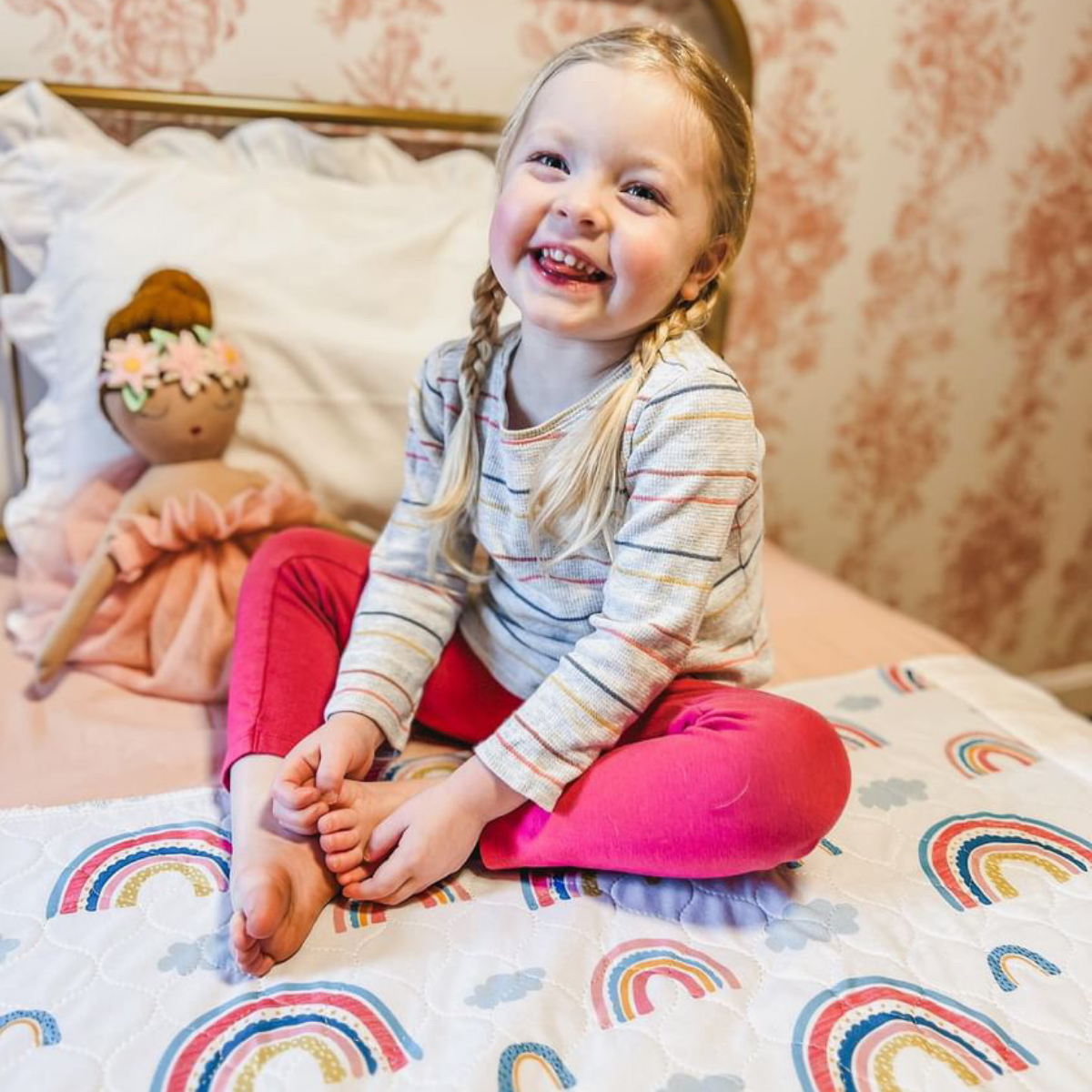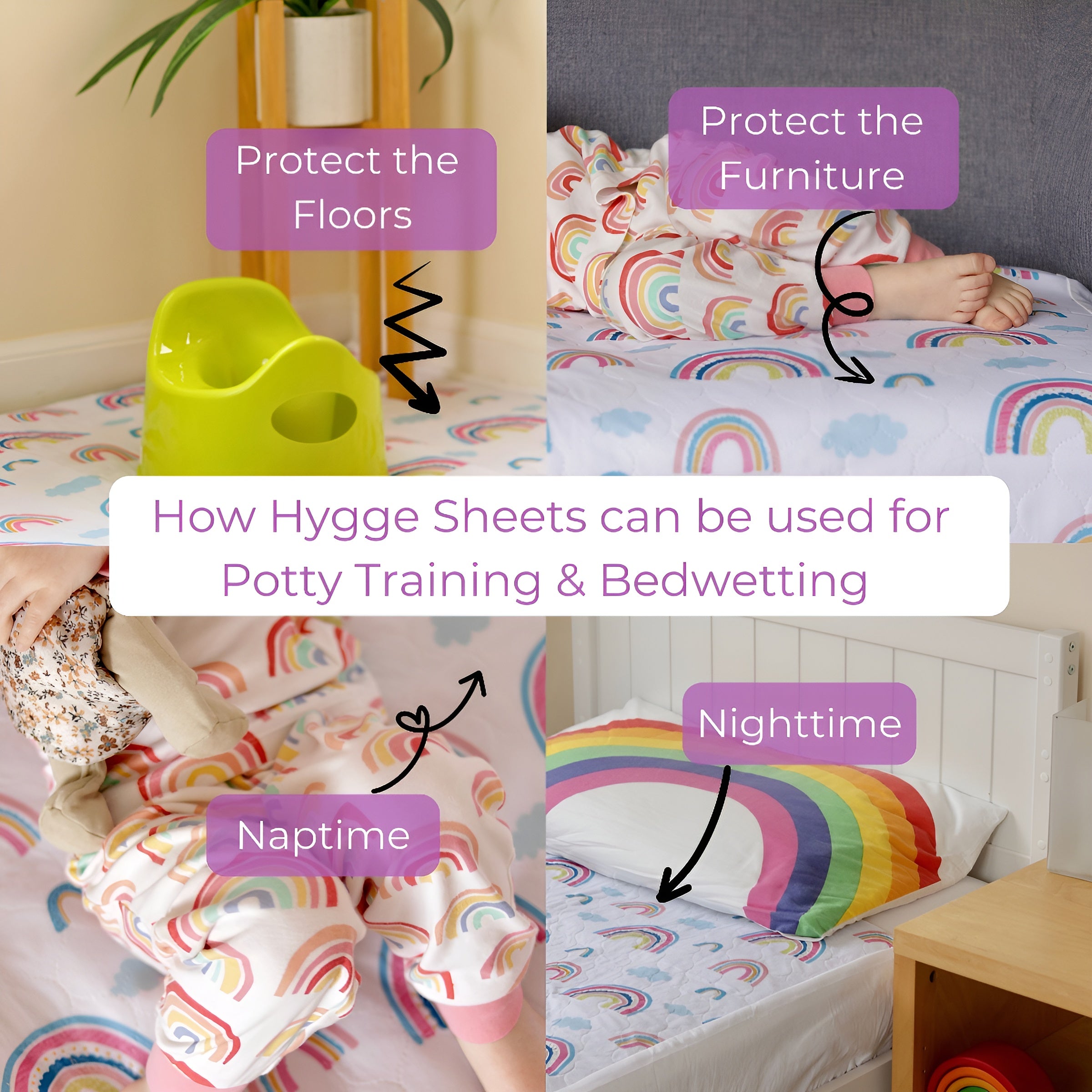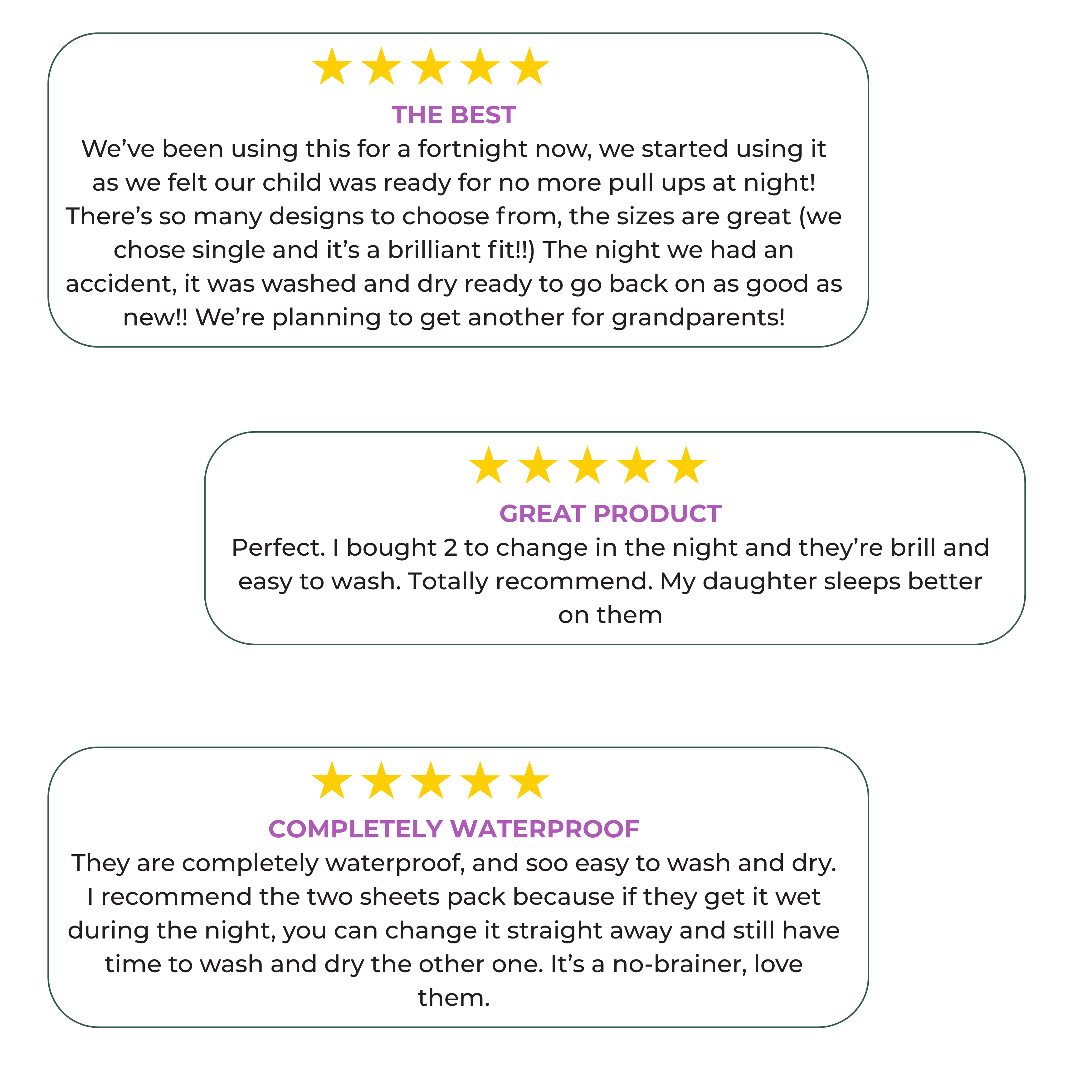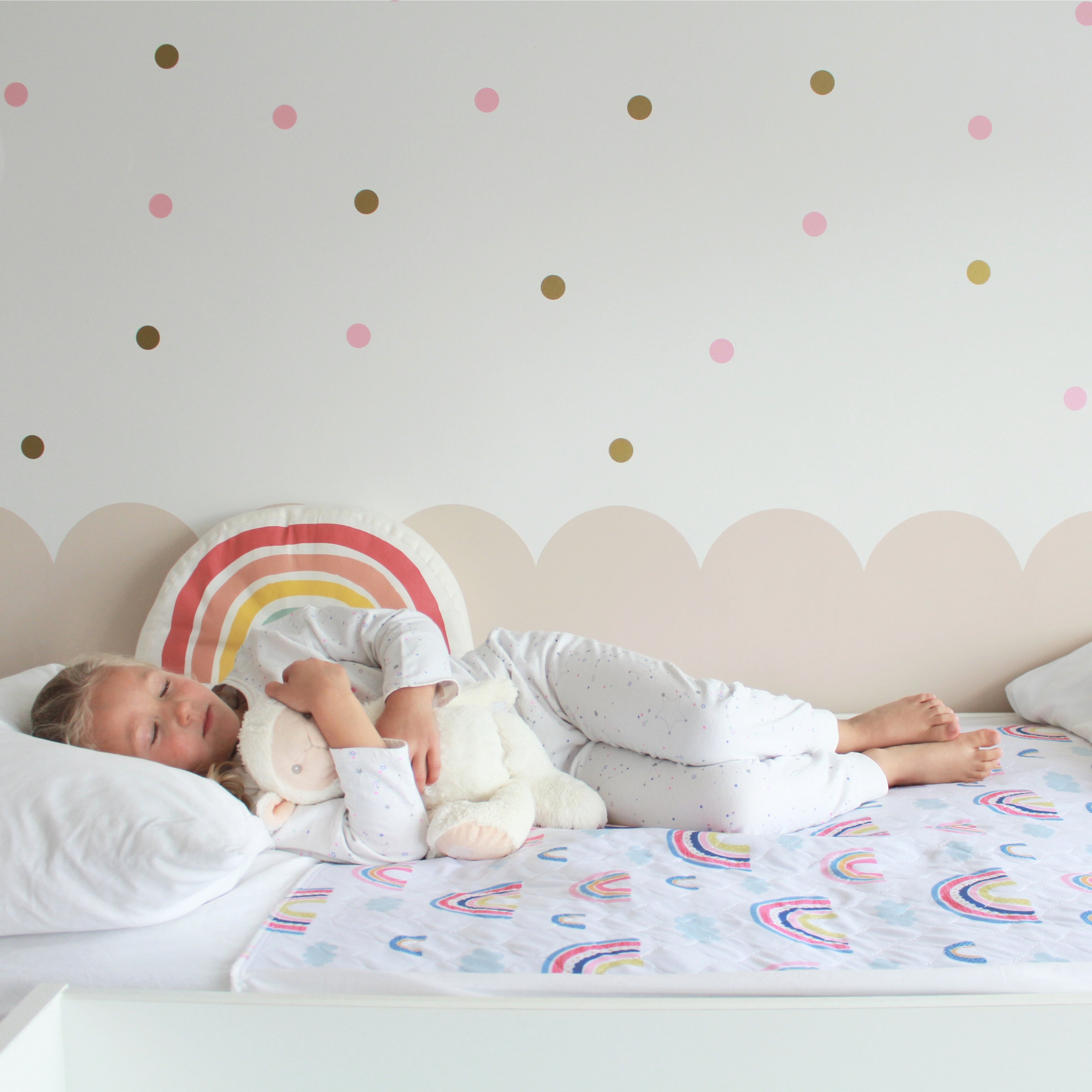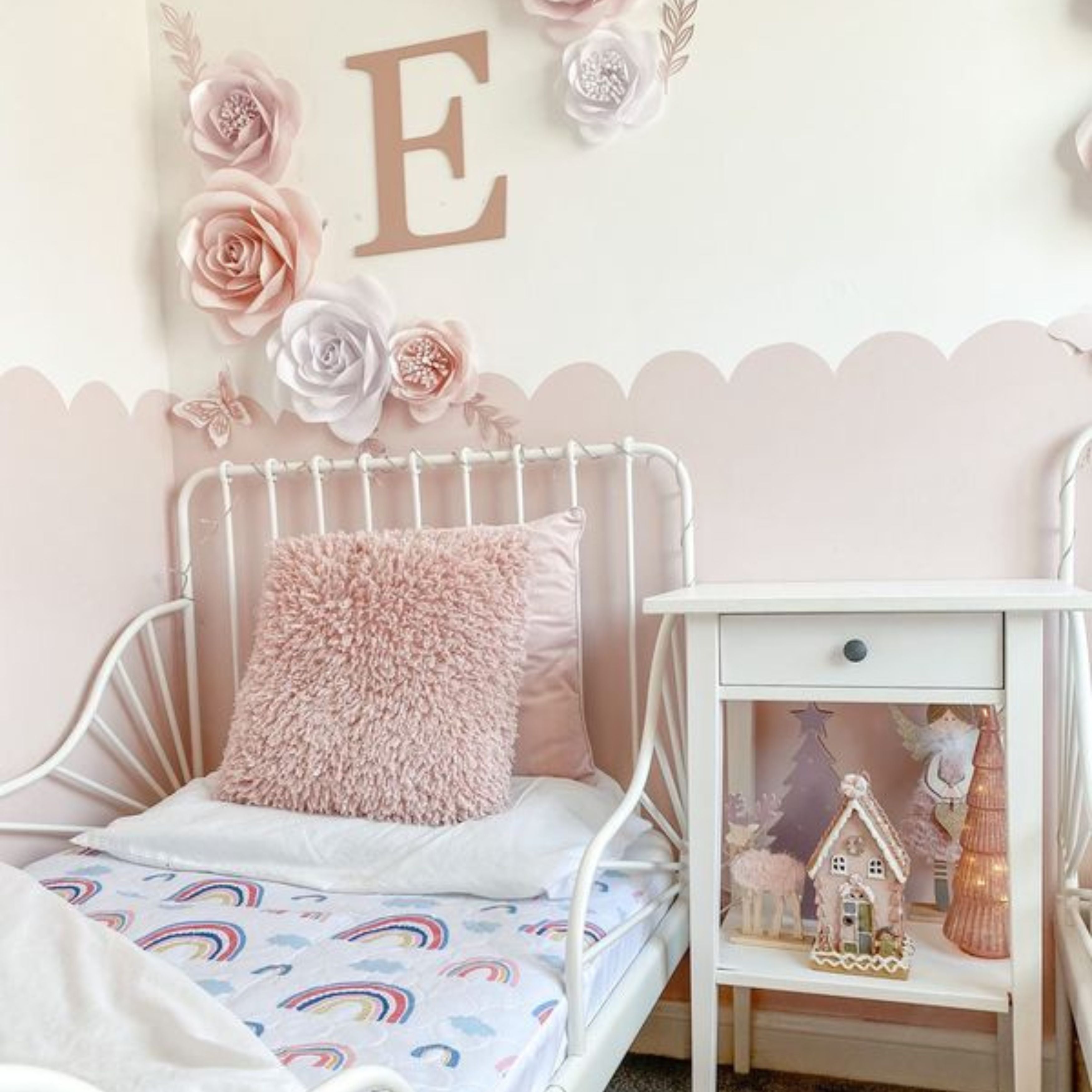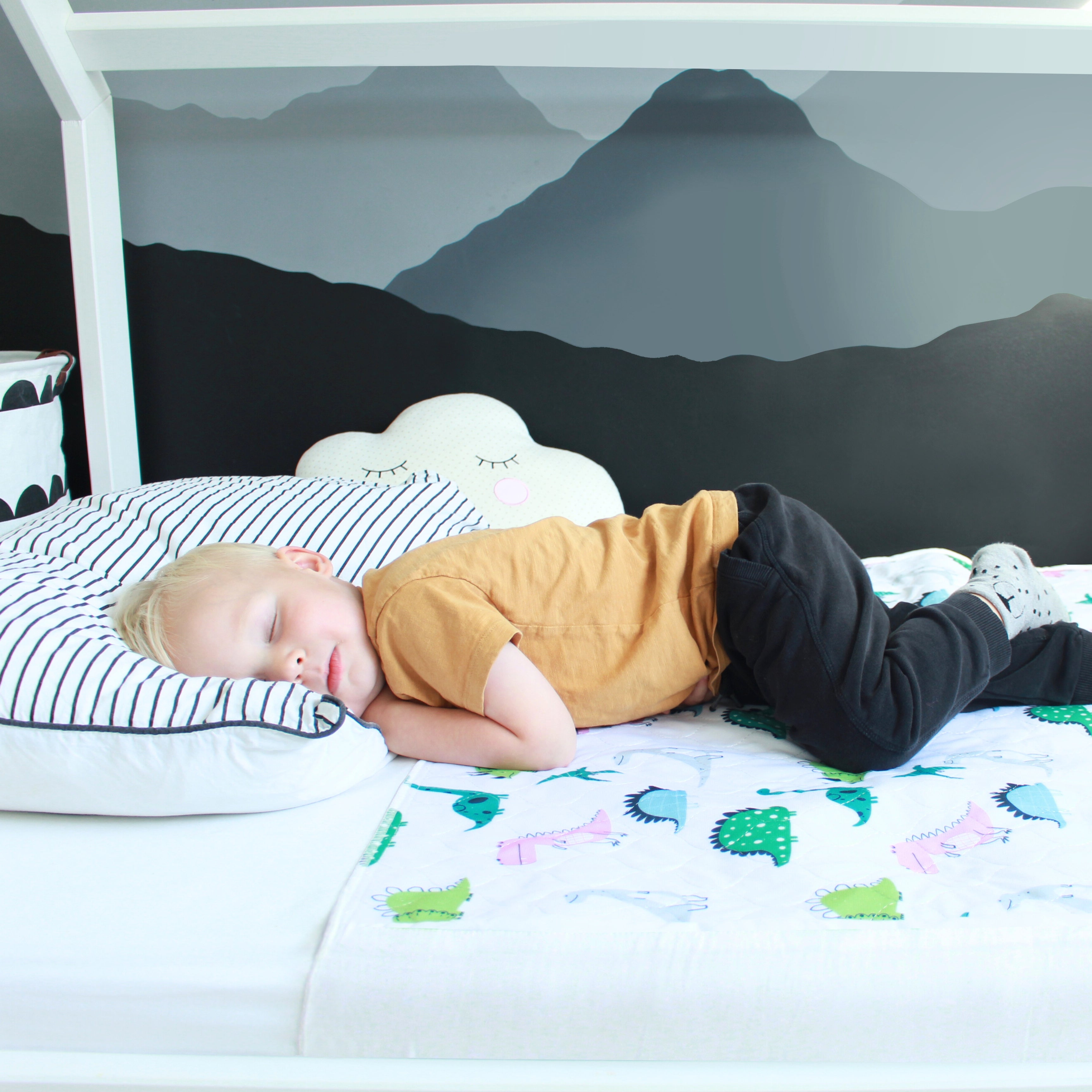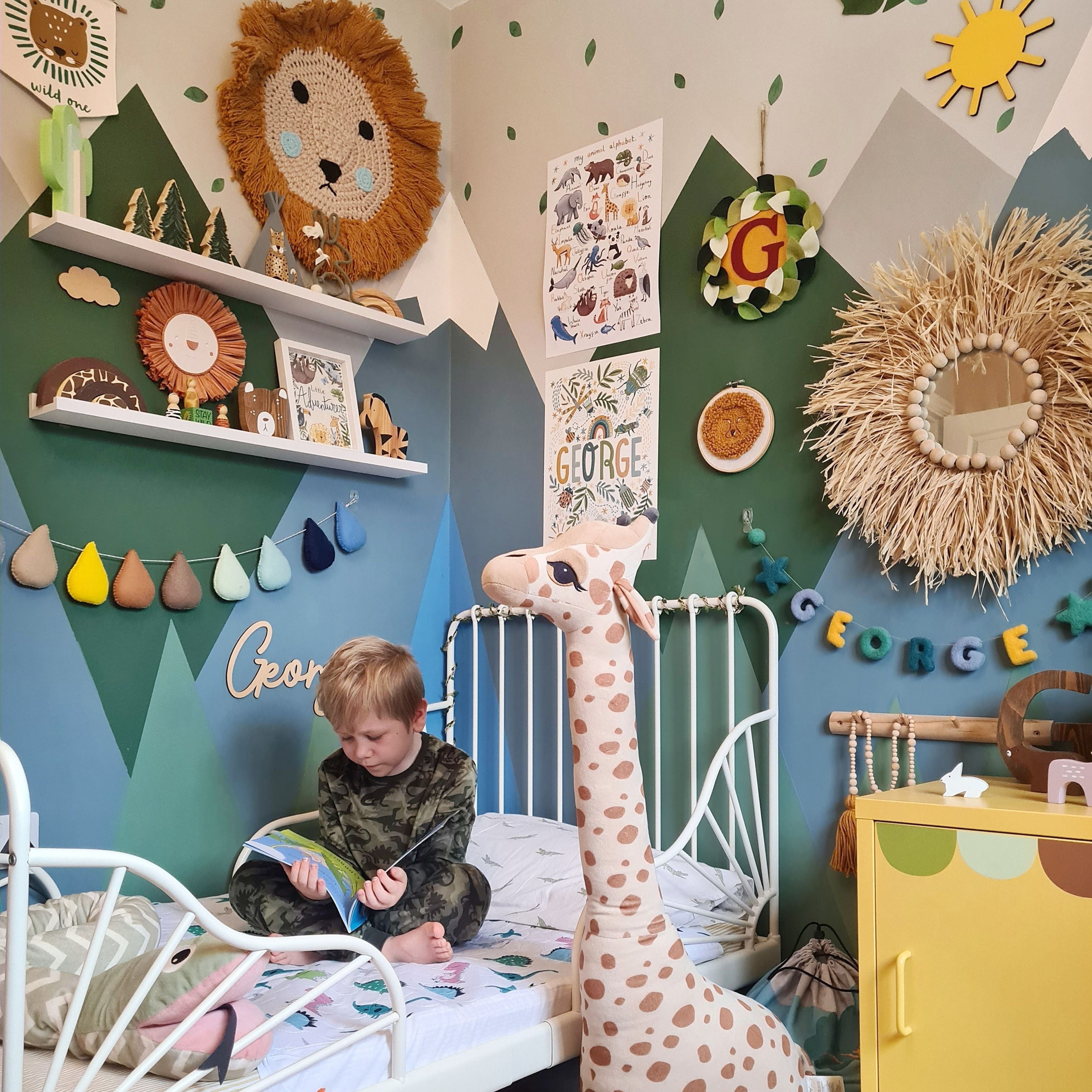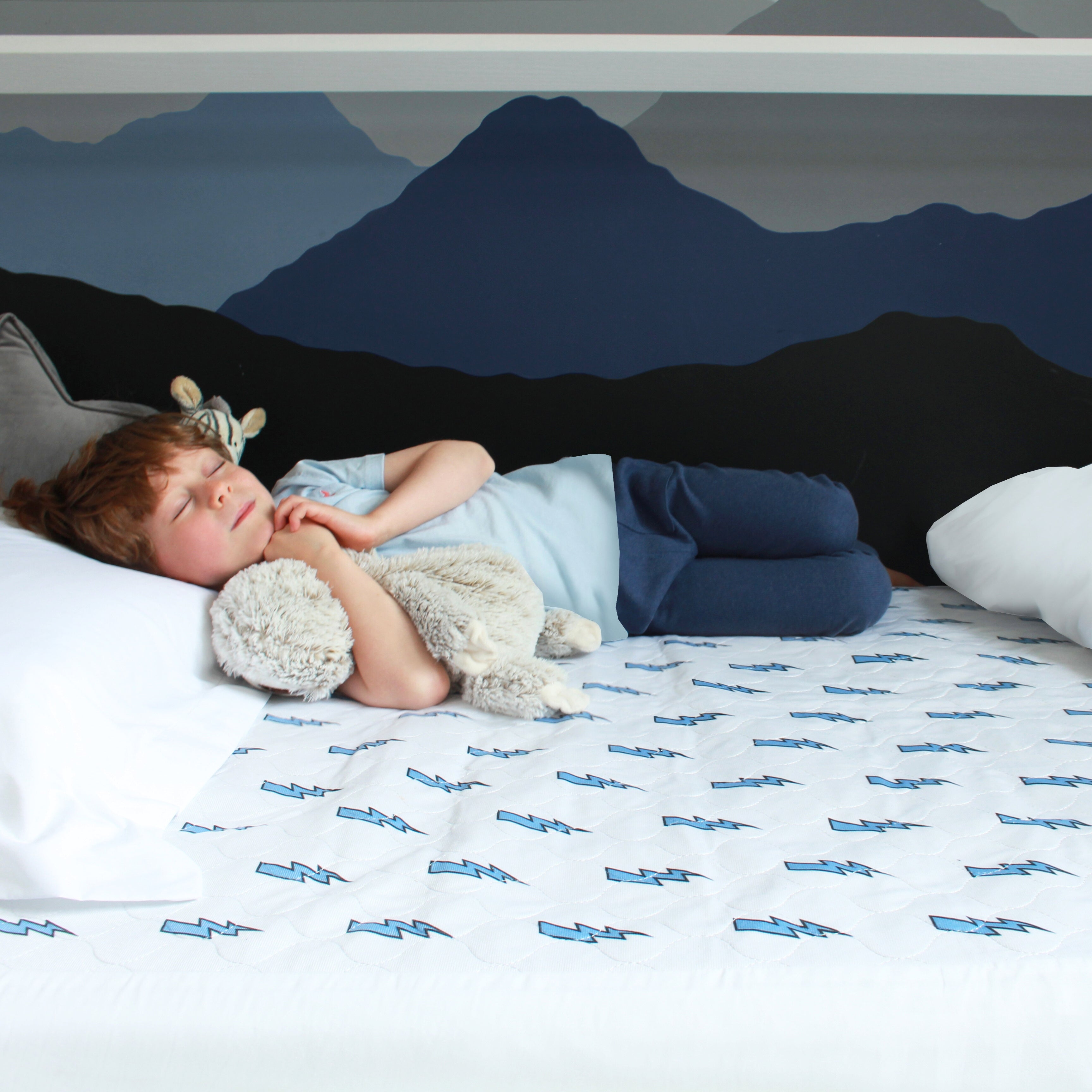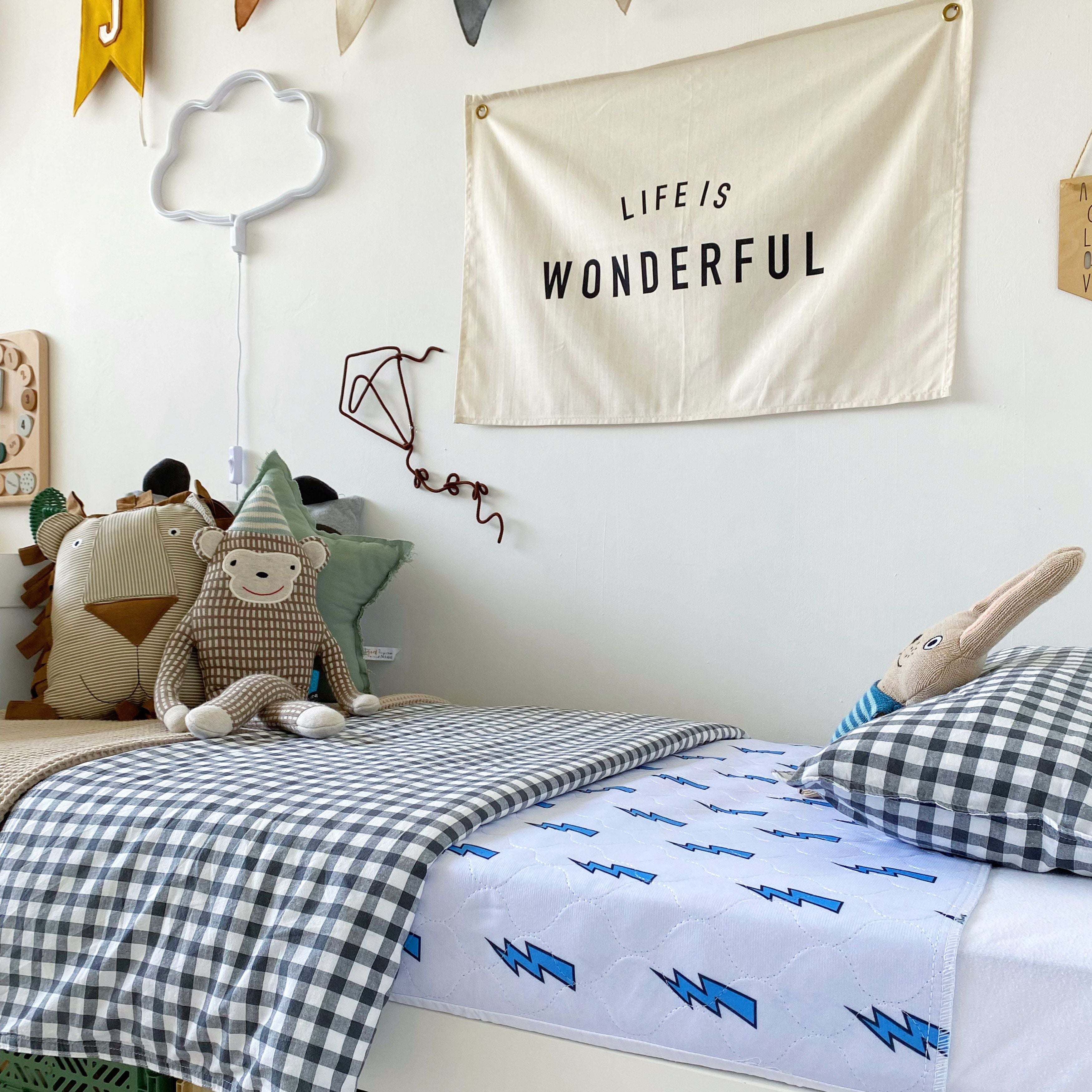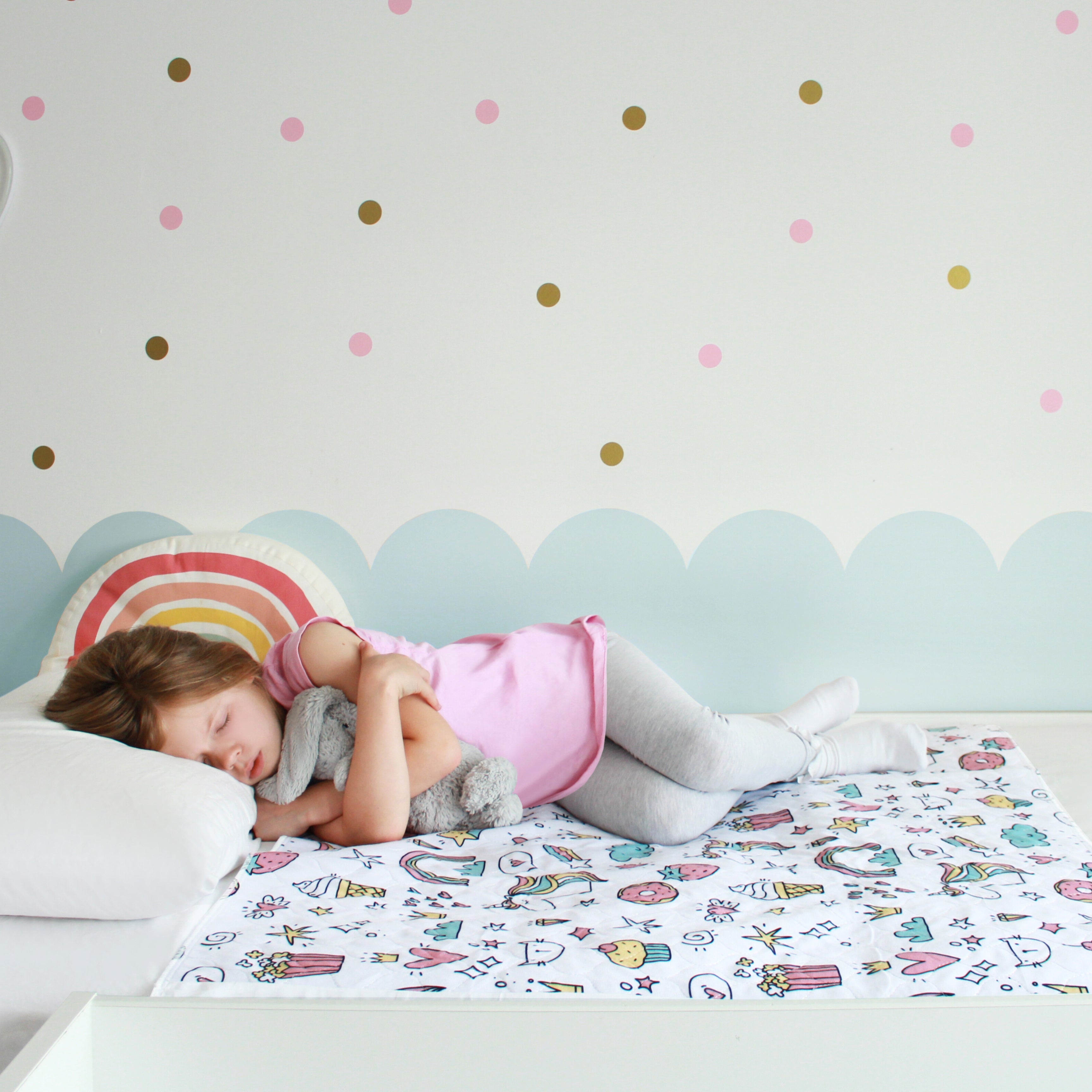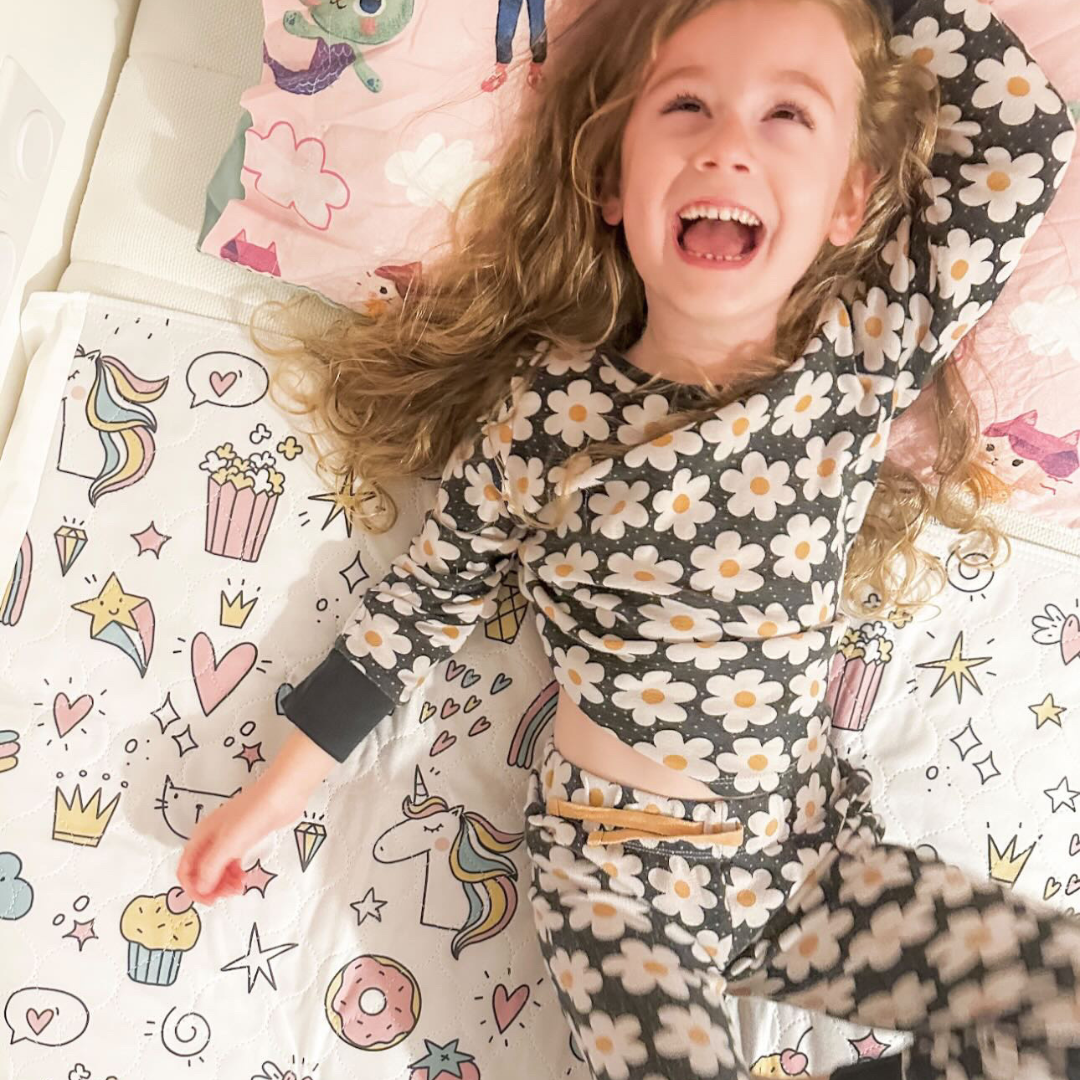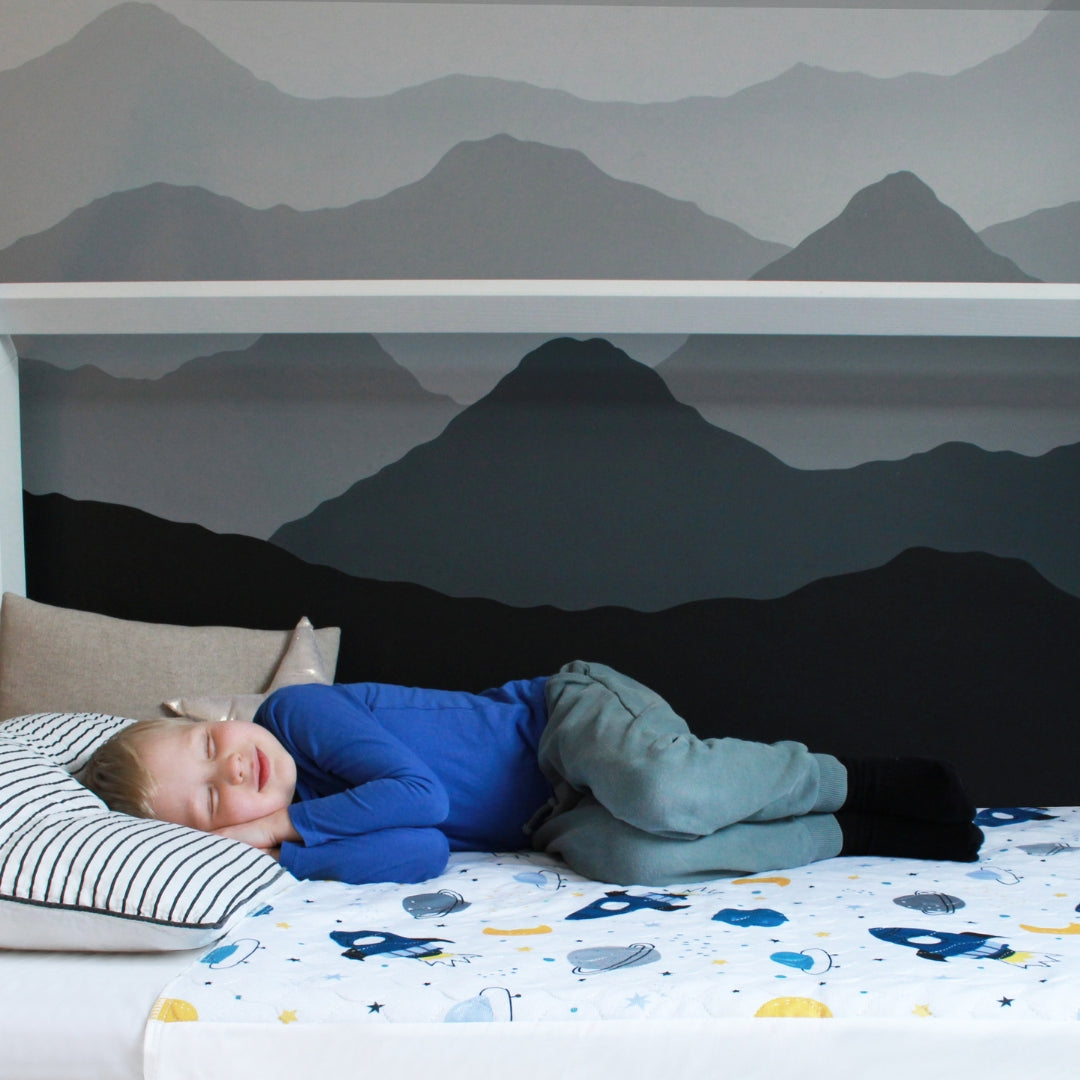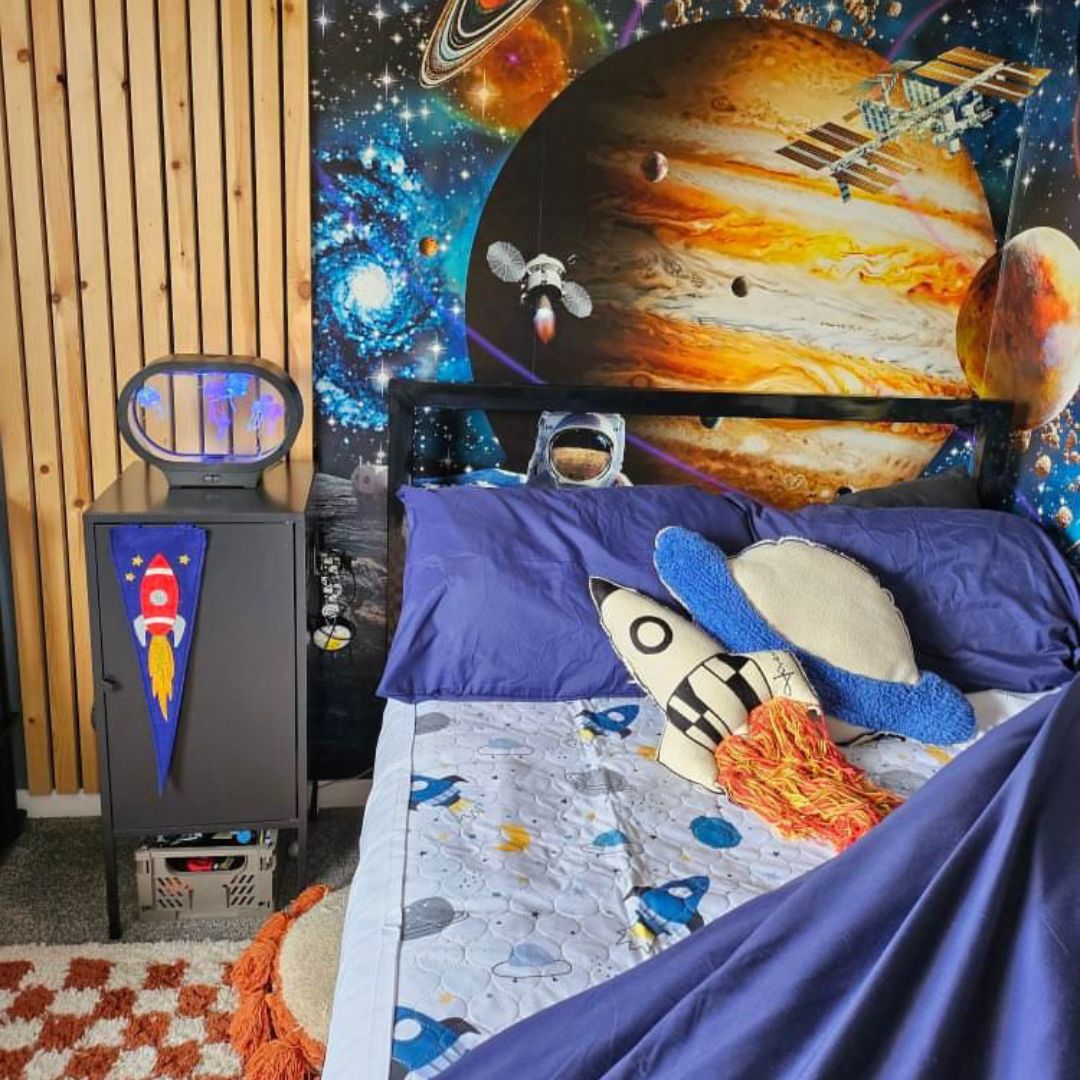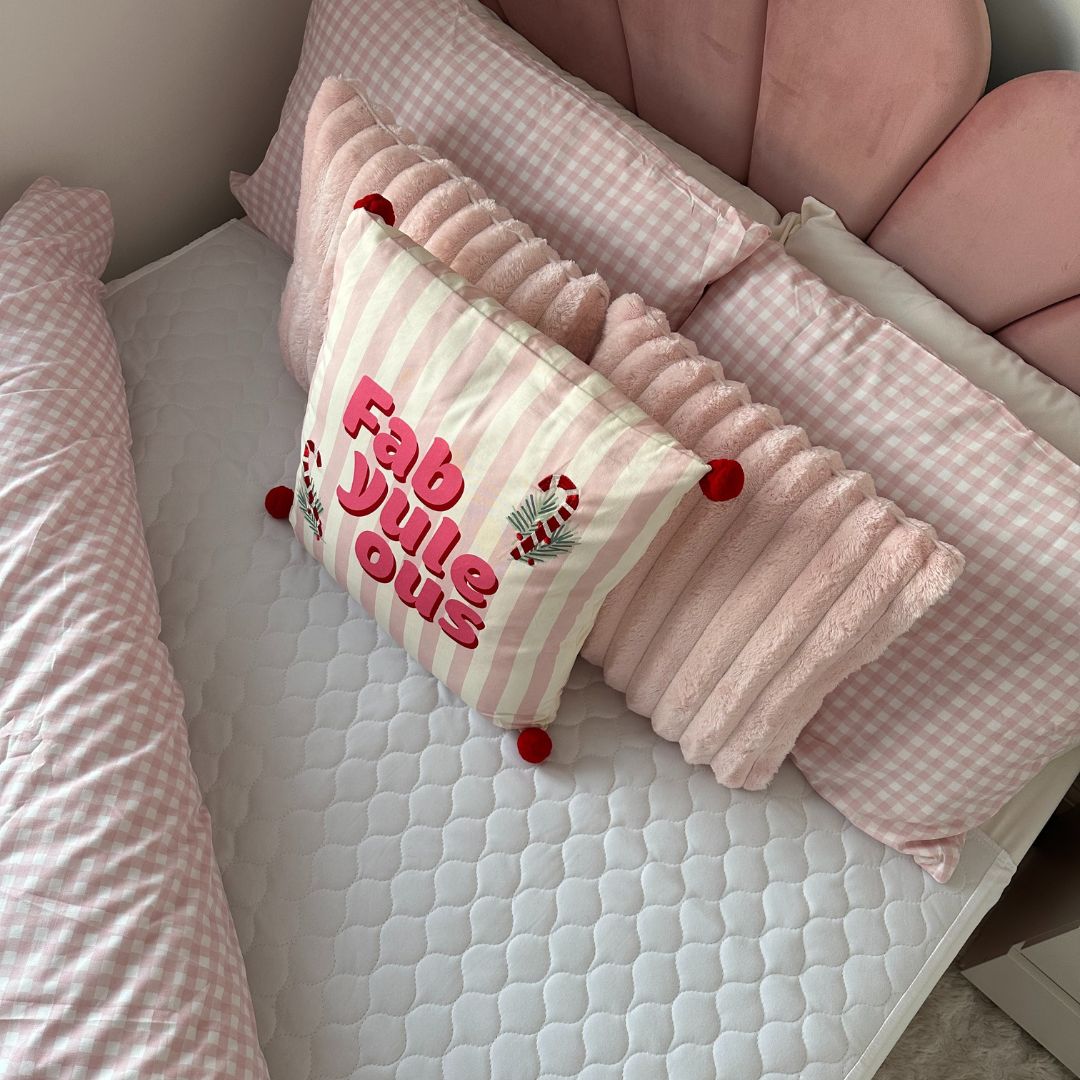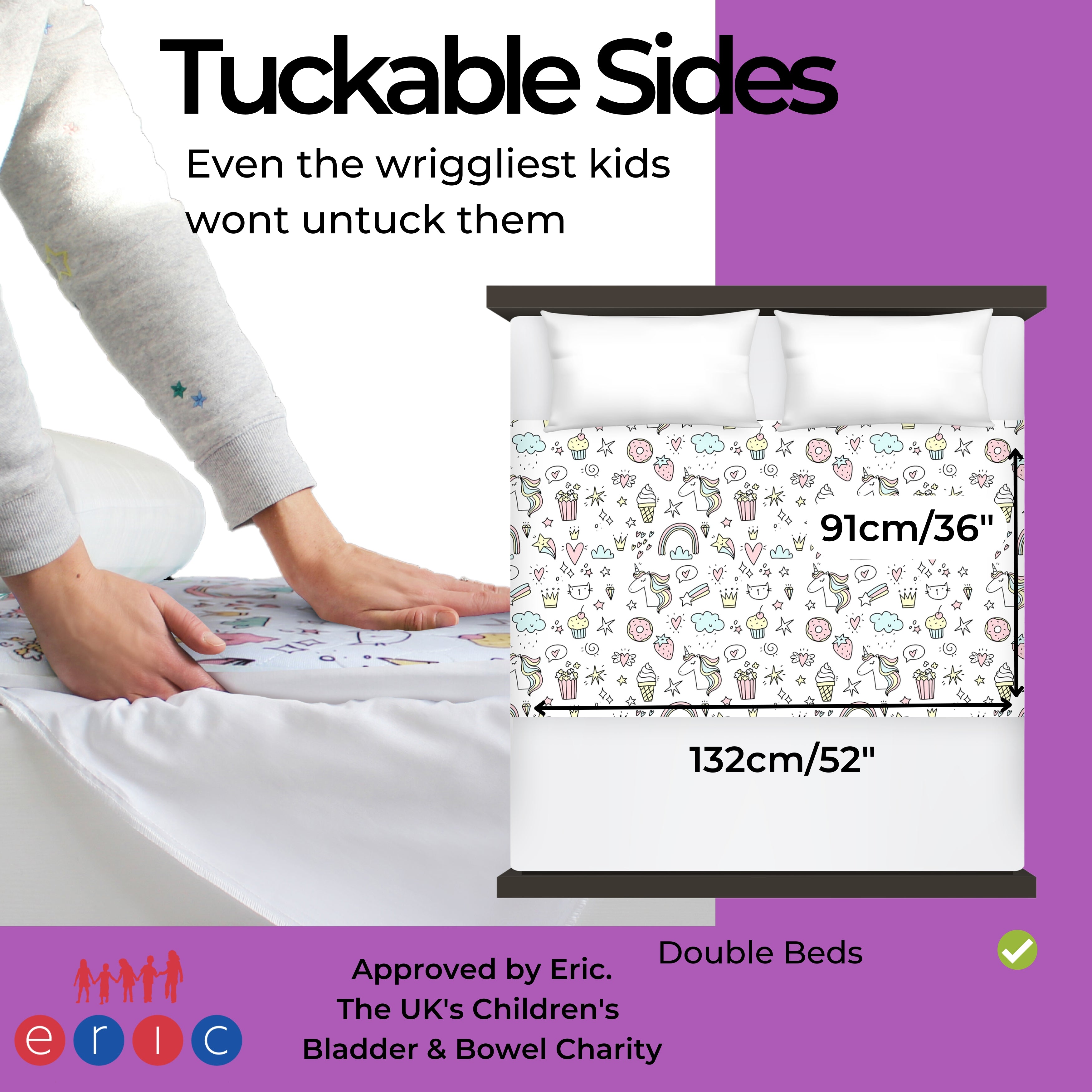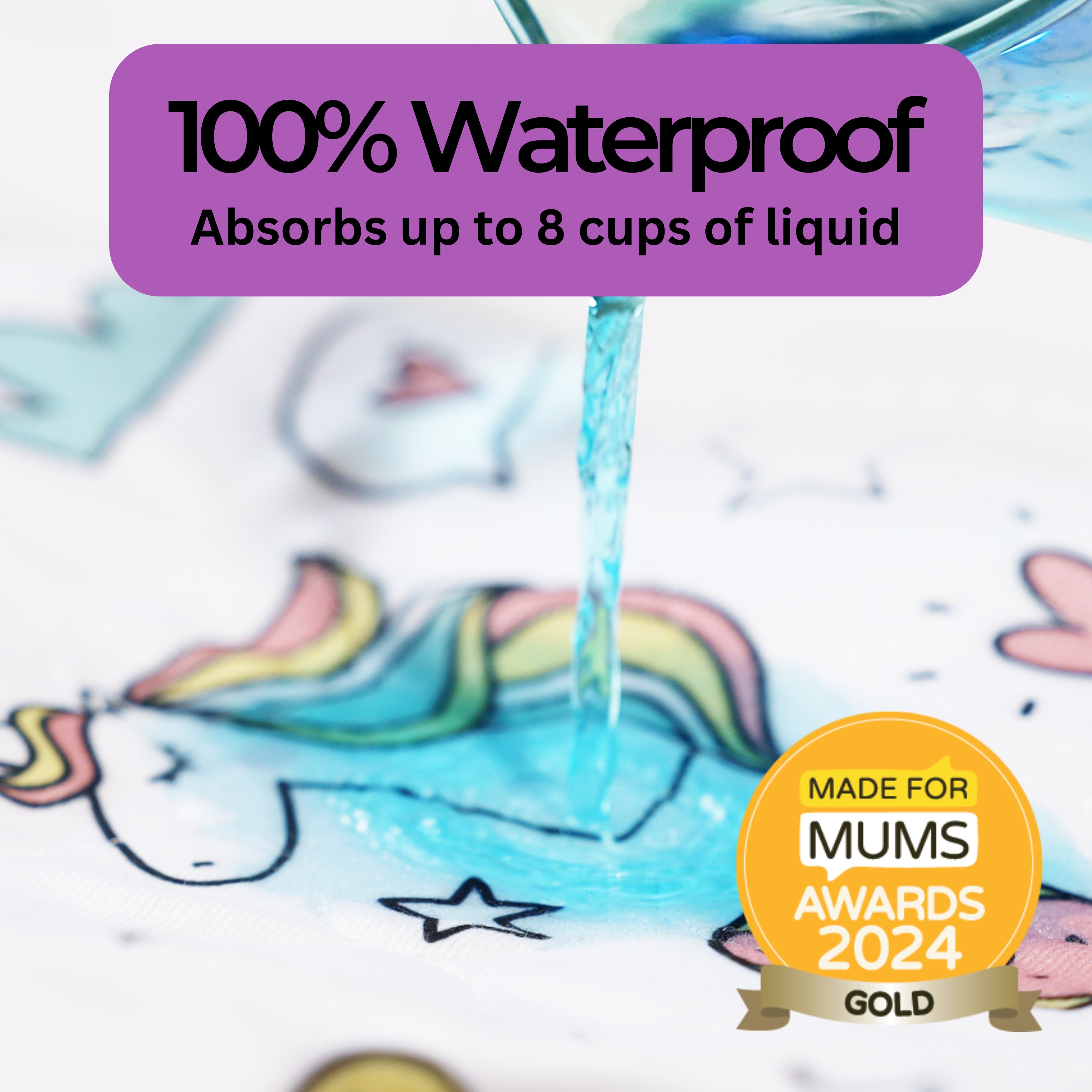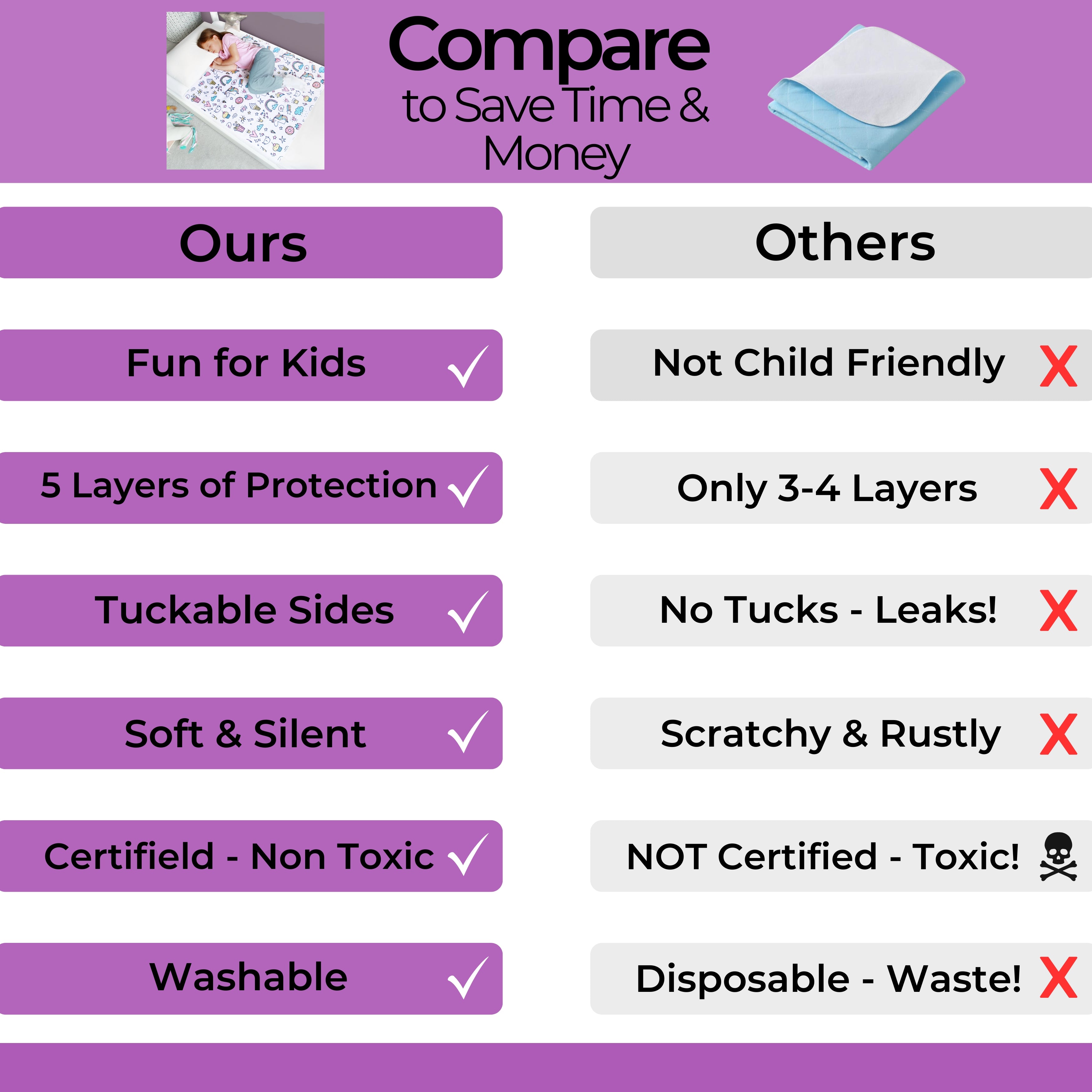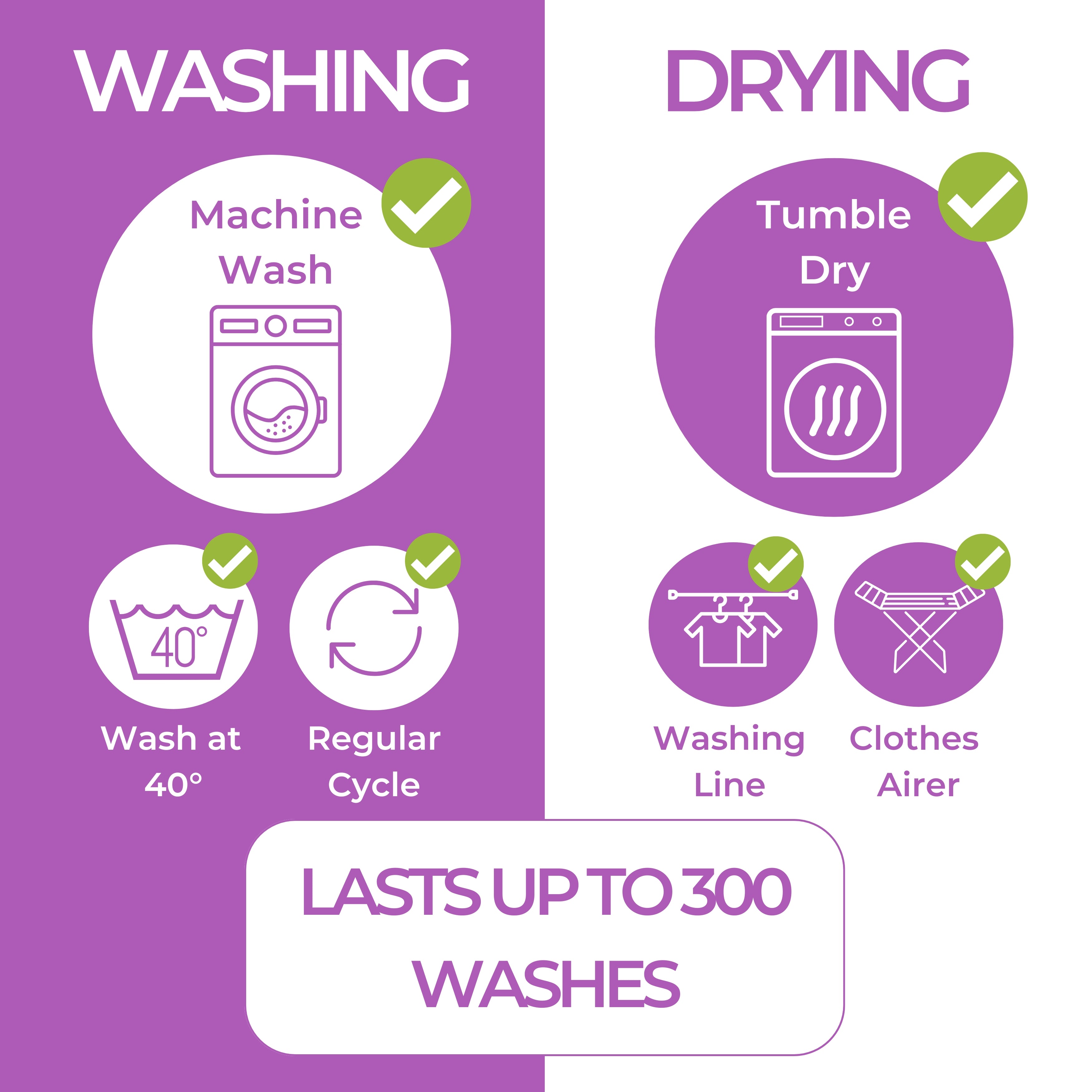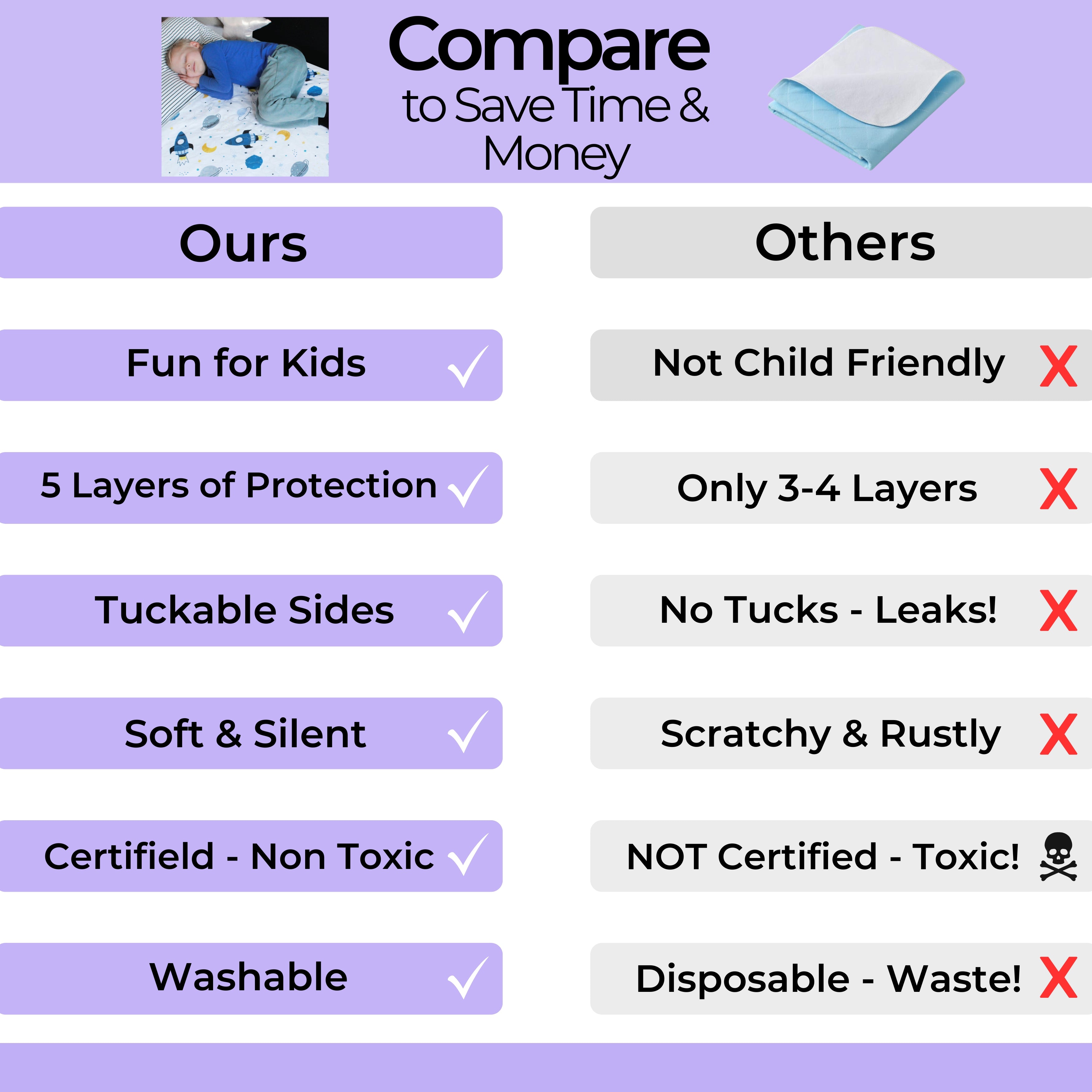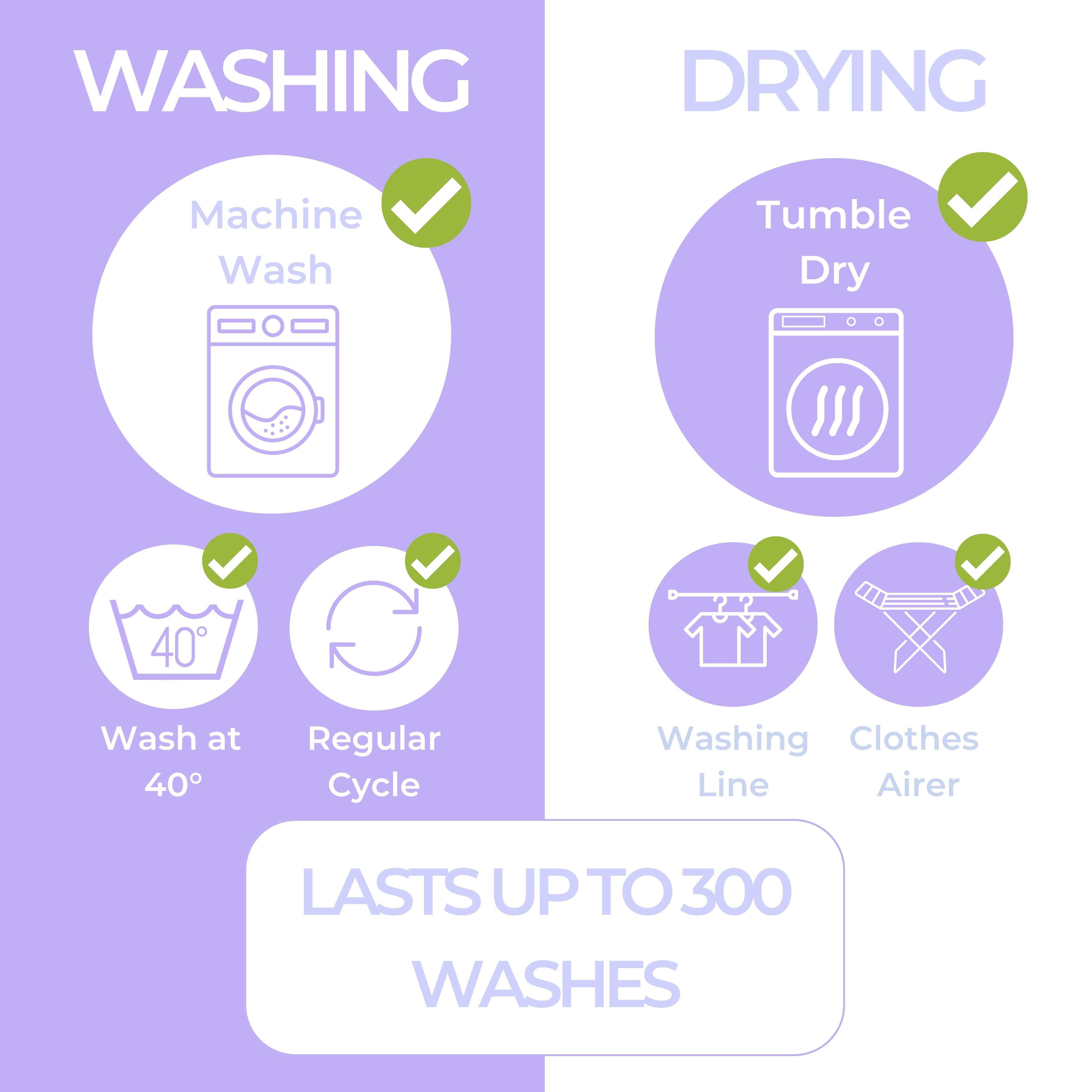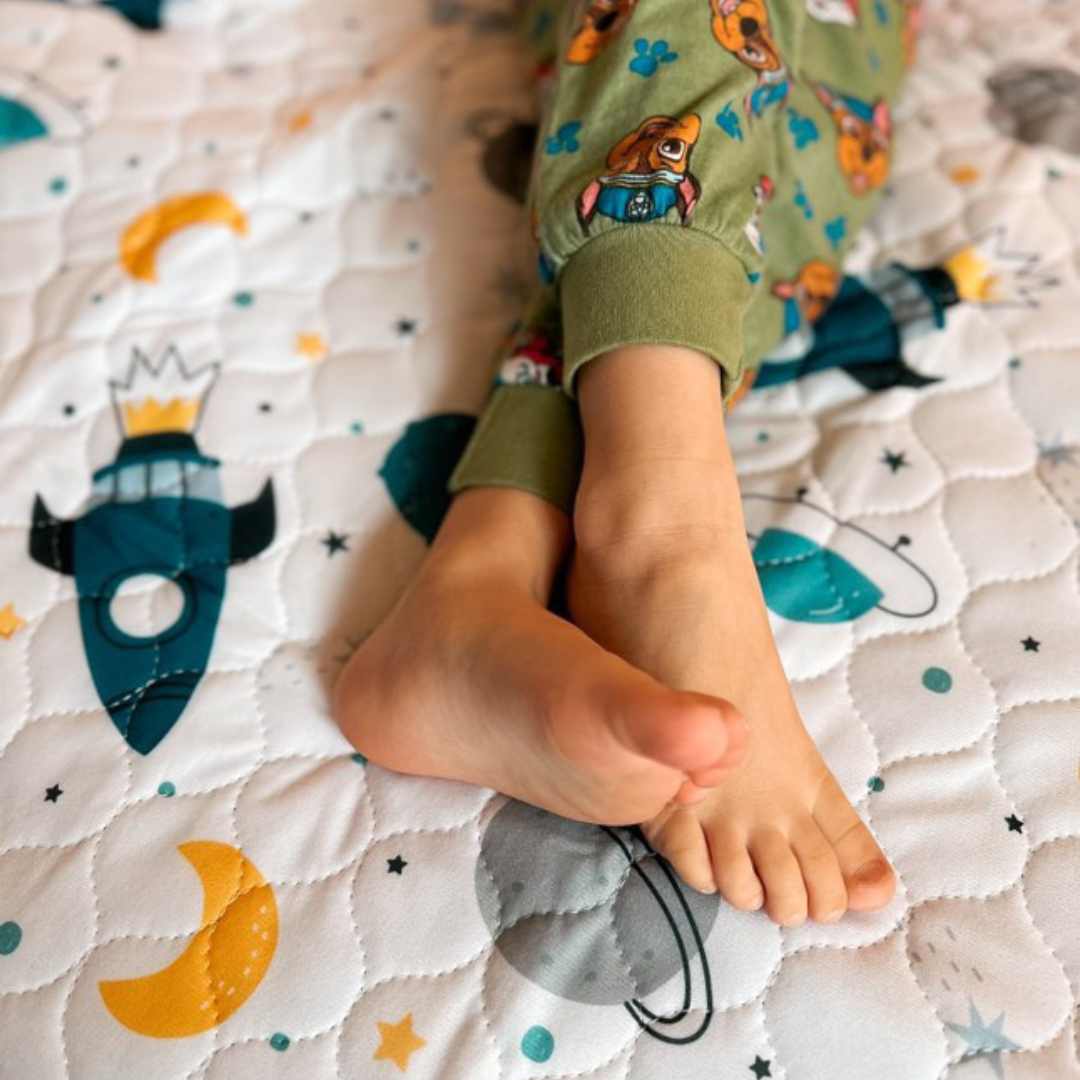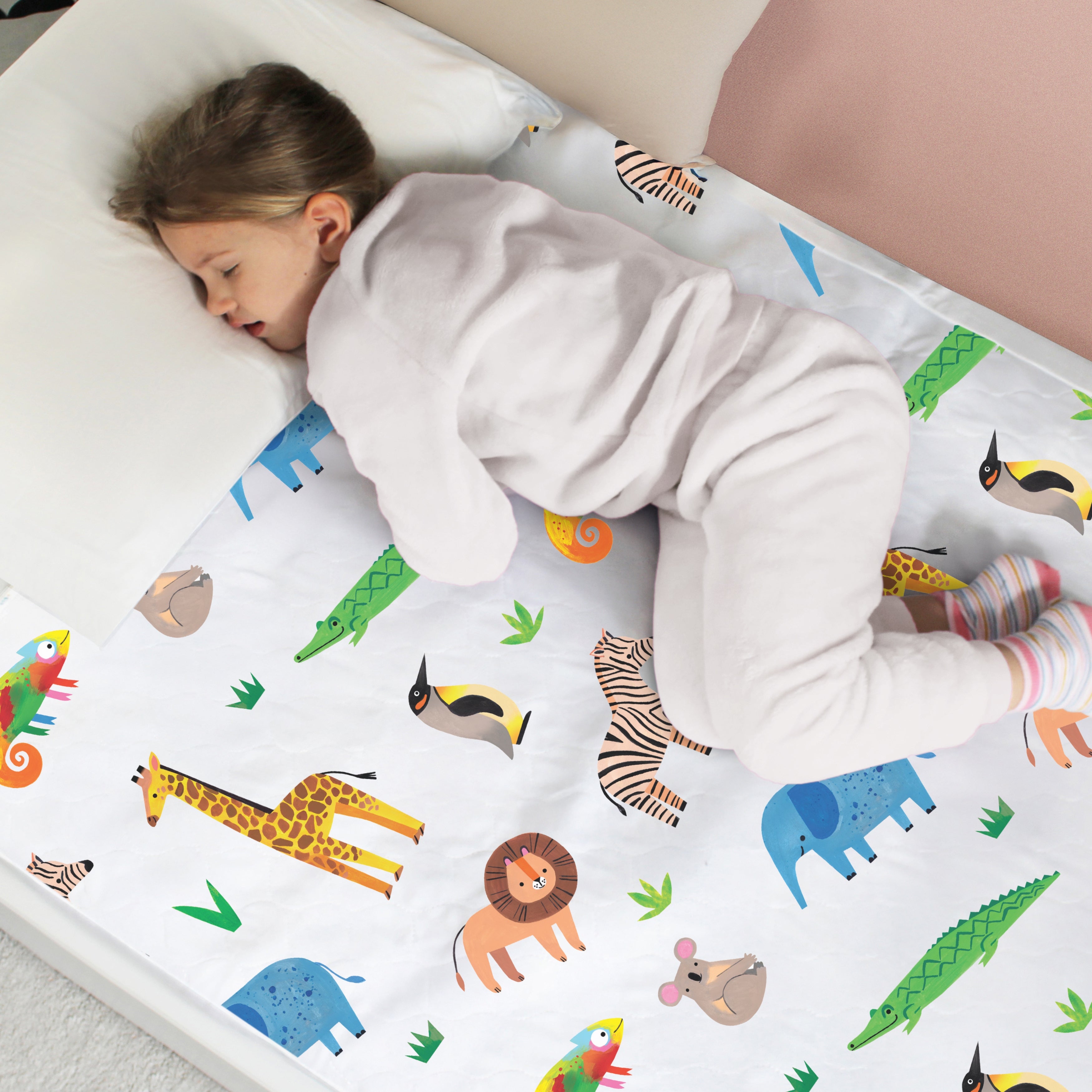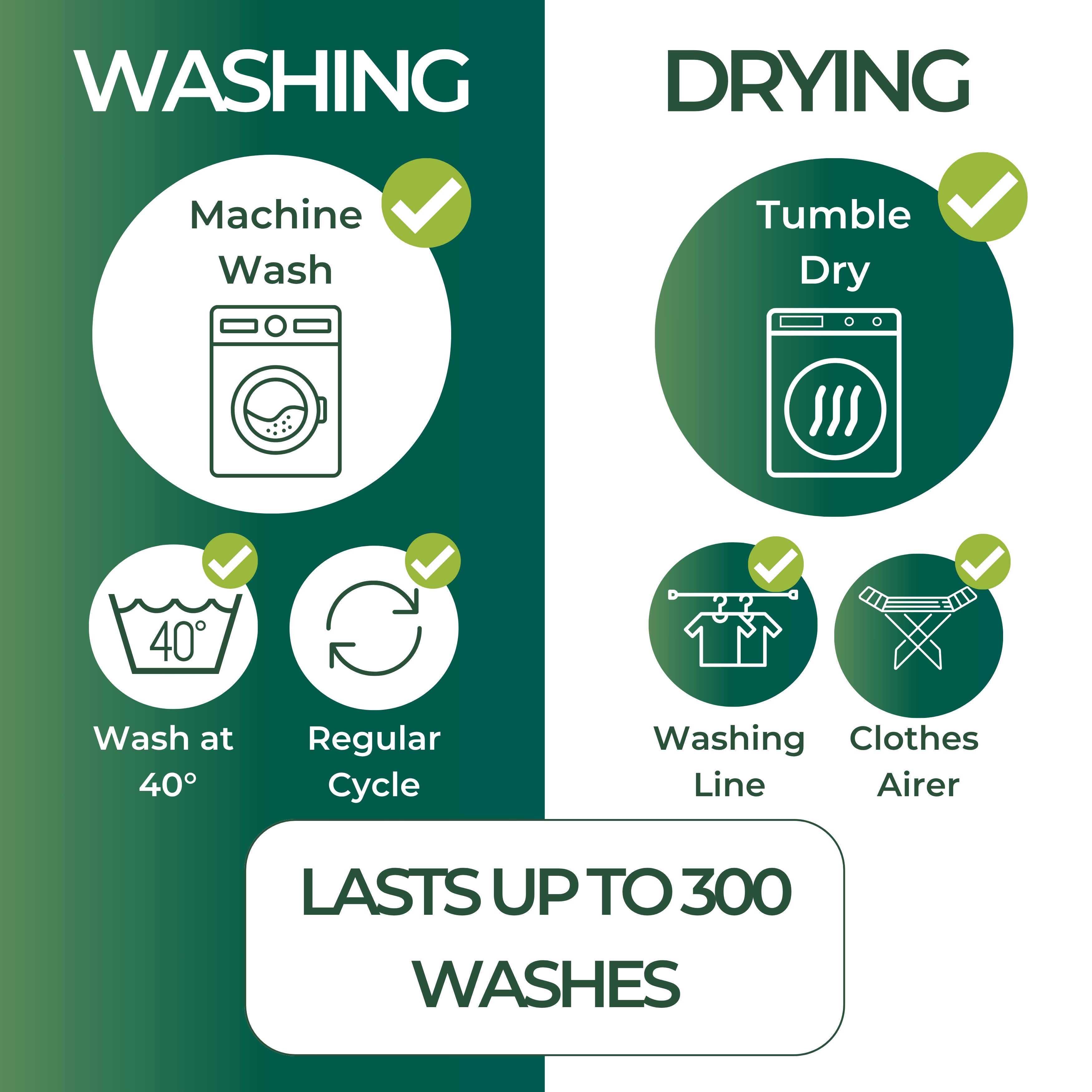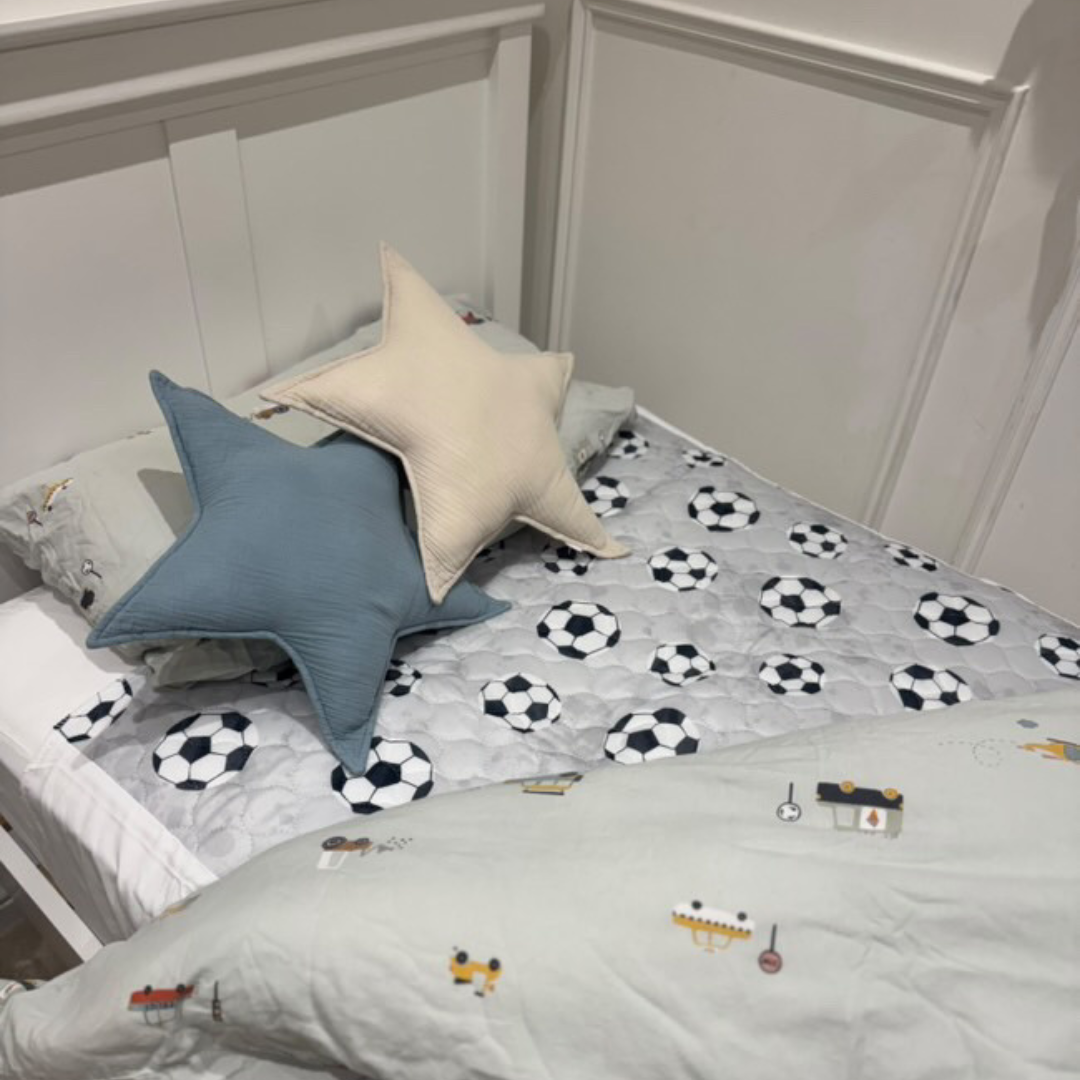Bedwetting is a frequent issue that parents face when their children begin potty training at night. It disrupts sleep patterns and often requires changing bedding in the middle of the night, leaving both parents and children exhausted. In an attempt to prevent bedwetting, some parents wake their child and take them to the toilet once or several times during the night. However, while this may offer a short-term advantage, it’s not an effective long-term solution for bedwetting. Read on to find out why.
The Problem with Waking Your Child for Nighttime Potty Training
The long-term aim of nighttime potty training is for your child to stay dry throughout the night. This means they need to develop the habit of waking up when they have a full bladder so they can use the toilet independently. Unfortunately, if you are the one waking them up, they may not learn to control their bladder on their own. Instead, you are dictating when they use the toilet, which can hinder long-term progress.
By imposing toilet time during the night, your child won’t develop the mental connection between a full bladder and the need to wake up. This means that as soon as you stop waking them, they may go back to sleeping through and wetting the bed again. For long-term success with nighttime potty training, it’s crucial to encourage self-directed behaviour.
Waking Your Child to Go to the Toilet at Night Interferes with Their Sleep Patterns
While waking your child during the night to use the toilet may help keep their bed dry in the short term, it disrupts their sleep cycles. If you wake them twice during the night, you are interfering with their natural sleep rhythms, which can result in exhaustion, grumpiness, and additional stress for both of you.
Considering that waking your child at night is only a temporary fix, the disadvantages often outweigh the benefits.
What Should I Do Instead of Waking My Child at Night?
If you’ve been waking your child up at night and want to try a different approach, here are some effective alternatives:
Use a Comfy Waterproof Mattress Pad like Hygge Sheets
A waterproof mattress protector can be a great alternative to waking your child at night during potty training. Waterproof sheets provide bedwetting protection in the form of a soft, absorbent pad that your child can sleep directly on.
If they have an accident, the bed wetting sheets will catch the moisture, preventing leaks from reaching the mattress. You can quickly swap the soiled pad for a clean one without needing to fully strip the bed in the middle of the night.
Return to Using Nighttime Nappies or Pull-ups
It may simply be that your child isn’t ready to go without nighttime nappies yet. Nighttime dryness can take months or even years after daytime potty training because the body needs to develop the ability to stay dry overnight.
Key factors include:
- The production of hormones that reduce urine output at night
- The size of the bladder
- The ability to hold urine overnight
- The ability to wake up when the bladder is full
If your child isn’t ready, using pull-ups for a little longer can prevent unnecessary stress while they develop the necessary bladder control. You can also find additional helpful tips in our nighttime toilet training guide.
Try a Bedwetting Alarm
If your child is struggling to wake up when their bladder is full, a bedwetting alarm can help train them to recognise when they need to go. These alarms detect moisture and sound a gentle alert when an accident occurs, gradually teaching your child to wake up when they feel the urge to wee.
Get a Medical Check-up to Rule Out Underlying Health Issues
If your child is over five and still struggling with bedwetting, it may be worth visiting a healthcare provider to rule out any underlying medical issues. Conditions like urinary tract infections, small bladder capacity, constipation, or stress can contribute to bedwetting.
In the UK, NICE guidelines recommend that children over five can visit a GP for support with bedwetting. In some areas, a school nurse may also be available to help.
A medical professional can help pinpoint the cause of bedwetting so that you can tailor the right solution. For example, if constipation is a contributing factor, increasing fibre and water intake or using medication may help.
Additionally, some children may be eligible for referral to an enuresis (bedwetting) clinic, where they can receive specialist support. In some cases, doctors may prescribe medication to help reduce bedwetting frequency.
Final Thoughts
Waking your child up to go to the toilet at night may seem like a helpful strategy in the short term. However, it does not teach them to wake up independently when they need to go, which is the long-term goal of nighttime potty training. In fact, in some cases, it may delay this connection.
Instead, using alternative strategies—such as waterproof sheets, pull-ups, or a bedwetting alarm can support your child through their nighttime potty training journey.
Remember, every child develops at their own pace. With patience, encouragement, and the right tools, your little one will eventually achieve nighttime dryness.
For extra comfort during the transition, consider adding a nightlight to make nighttime bathroom trips less intimidating.
Happy potty training!
Take care,
Catherine x

